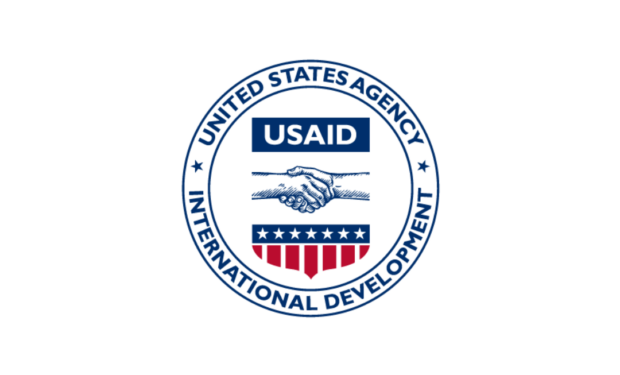USAID: Domestic Battles with Foreign Aid
The attempted dismantling of USAID under executive authority has raised significant constitutional questions regarding the limits of presidential power, the role of Senate confirmation, and the judiciary's capacity to enforce compliance in the face of foreign aid suspension.
Foreign Aid
The U.S. Agency for International Development (USAID), an agency focused on providing foreign aid, has recently been facing domestic battles. This agency has historically been tasked with facilitating foreign economic growth and helping countries stricken by disaster, disease, and poverty. To achieve these goals, USAID had a budget of approximately $40 billion in 2023. To put that number in perspective, this $40 billion accounted for a mere 0.6% of U.S. spending during that same year.
USAID was founded by President Kennedy through the Foreign Assistance Act of 1961 to encourage national stability and American security amidst foreign tensions. For approximately six decades, USAID has orchestrated humanitarian aid programs on a transnational stage with both reactionary and preventive programs. These programs primarily center around health, education, economic growth, and democratic reform. Perhaps the largest and most well-known goal of USAID is to not only respond to poverty but also to address its root causes.
To illustrate, in 2017, almost one in every ten people suffered from hunger nationally. Hunger is a byproduct of poverty, but merely providing people with food is just a bandage on the deeper wound. To prevent hunger, there needs to be consistent access to food. With this in mind, USAID created the “Feed the Future” program that focuses on stabilizing crop production, providing agricultural education, and preserving resources for economic security in these communities. Prior to their website being deleted, USAID posted its commitment to “eradicating extreme poverty within the next 15 years” – a commitment to each of the 1.2 billion people who were living in extreme poverty; a commitment it may not be able to continue fulfilling.
Domestic Battles
These programs came to a sudden stop when Donald Trump was elected for his second term in 2024. At the outset, he initiated a series of “America First” policies that would quickly make news headlines and grab the attention of USAID employees. Recipients of this aid, particularly poorer countries, are undoubtedly fearful as USAID efforts account for approximately twenty percent of the foreign assistance they receive.
On inauguration day, President Trump signed an executive order initiating a 90-day pause on any new aid spending, including those organized by USAID to allow for a “review” of foreign assistance. Functionally, this executive order froze program spending and halted U.S. assistance in foreign aid. This executive order was followed four days later by a stop-work order to temporarily pause all aid spending, with only a few exceptions. President Trump was not alone in these efforts. Elon Musk, as “head” of the Department of Government Efficiency (“DOGE”) and an advisor to President Trump, was tasked with assisting the dismantling of USAID. By the first week in February, the USAID website was removed, the office was closed, and nearly all employees (sources estimating thousands of direct hires) were placed on administrative leave.
Legal Implications
The events that have taken place over the course of the last two months have raised a variety of legal issues. First, and perhaps the most reported on, is the authority of the president to issue executive orders. Vested with executive power, the president has the inherent authority to issue executive orders. Once issued, executive orders can have the same authority as a law that goes through traditional channels.
Nevertheless, executive power does not equate to unfettered power. Courts, by way of judicial review, can determine the legality of an executive order, and this is precisely what happened to the executive order that impacted USAID. In the face of the funding freeze and mass administrative leave, a series of temporary restraining orders were issued by a federal district court to reinstate USAID funding and its employees. President Trump ignored these rulings.
Most recently, federal Judge Theodore Chuang ruled that Musk’s endeavors to dismantle USAID are likely unconstitutional. Judge Chuang challenged Musk’s authority to issue orders to USAID employees as Musk was not confirmed by the Senate as required for principal officers. An article published by the Harvard Crimson opined that this caveat is important because other USAID funding cuts and program freezes could be permissible if not approved by Musk or DOGE. Based on this decision, Judge Chuang ordered the restoration of access to email addresses and the building for USAID employees.
Funding freezes and cuts remain impending. Not only do President Trump’s executive orders impact the United States, but they have the ability to impact other countries and countless people in need. The impacts of the absence of USAID and its programs transnationally threaten economic prosperity, peace, education, human rights, and democratic reform. The effects of the turmoil between the restoration of programs and continued funding cuts is still being felt.






